It is now morally repugnant to support the buying and selling of humans. To hold others in bondage as slaves is understood as barbaric, but it was once business as usual in many parts of the world including the antebellum American South. Slave holders were successful and respected members of their communities; they were social, economic and political elites, but something changed. IDEAS about what was right and wrong, CONVICTIONS of what was morally permissible, CONCEPTIONS of what was just and unjust– all began to change.

Slave trade memorial in Zanzibar, Tanzania.
The abolition of slavery in the American South didn’t come easy-it came about through bloody revolts and a horrific civil war (1861-1865).
I join others in believing that we are at yet another moral tipping point. Again there is a respected class with economic and political clout that is engaged in morally untenable practices, namely those involved in the fossil fuel industry. As Mouhot, who has written a book on the subject, has written:
“Intriguing similarities between slavery and our current dependence on fossil-fuel-powered machines struck me: both perform roughly the same functions in society (doing the hard and dirty work that no one wants to do), both were considered for a long time to be acceptable by the majority and both came to be increasingly challenged as the harm they caused became more visible.” (full article here)
Neither he nor I are suggesting morally equivalency between slavery and the fossil fuel industry; there are critical differences between the two, however, there are structural similarities which are striking and important. Just as we needed to end the Southern economic dependence on slavery, we need to end our dependence on fossil fuel energy.
Is the Fossil Fuel Industry Immoral?
As Mouhot has noted, “Our contemporary economies have become extremely dependent on fossil fuels, just as slave societies were dependent on their slaves – indeed far more than the latter ever were.” This dependency, in both cases, generated wealth, power, and influence. The wealth and power of large plantation owners in the South was connected to land and slaves; the wealth and power of the fossil fuel industry is directly connected to the amount of coal, oil, and bitumen extracted–“black gold.” Fossil fuel executives, like slave owners before them, believe they have a right to what makes them rich and powerful and aren’t willing to give it up without a fight.
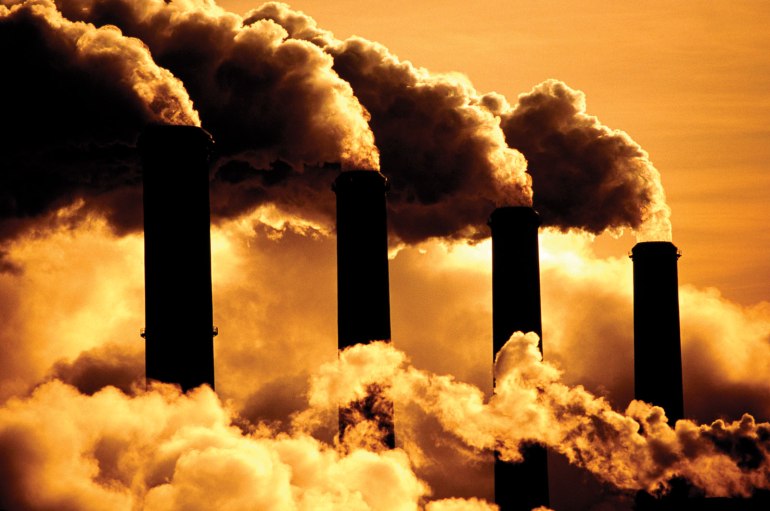
But, you might ask, how is oil money immoral? The burning of fossil fuels, which are currently the most common source of power for electricity, transportation, heating and so on, is known to release carbon dioxide. Carbon dioxide is also expelled every time we exhale. The problem with the production of carbon dioxide through power generation and transportation is the astronomical amounts of CO2 that are released all the time, day and night, streaming into the atmosphere. We know that this human generated CO2 (through the burning of fossil fuels) is changing the composition of the atmosphere surrounding the earth. We also know that CO2 in the atmosphere acts like a blanket holding heat in. This is what scientists have called the greenhouse effect. Like the glass or plastic used in the construction of a greenhouse, CO2 prevents heat from escaping the planet. The more CO2 we pump into the atmosphere the warmer the planet gets. There is no debate on these basic points, but just as slave owners appealed to the Bible to justify slavery, fossil fuel executives have sown confusion and doubt about the science behind global warming and climate change (for more go here). Their campaigns of misinformation have been so successful that many people have been wrongly convinced that climate change is a hoax. It is not a hoax; it is scientifically established fact.
Dangerous Times – Brought about by our Fossil Fuel Habit
We are now seeing and living the dangerous reality of global warming and climate change. It is no longer “just a theory.” It is part of our world. It is reflected in the historic floods, fires, droughts, and hurricanes that have increased in strength and frequency around the globe creating catastrophic damage to property and loss of life. By now we have all experienced an historic climate related catastrophe or have friends or family who have. Some of the events that have impacted me and my friends and family are hurricane Katrina and the flooding of New Orleans (2005), fire in central Texas (2011), super storm Sandy in New York (2012), southern Alberta flood of 2013, the central Alberta fire of 2016, and hurricane Harvey and the Houston flood of 2017–all of these events were devastating, life-altering events for the communities, families, and individual impacted. I invite you to share your experiences with our growing climate catastrophe below, what floods, fires, storms, droughts have you experienced?
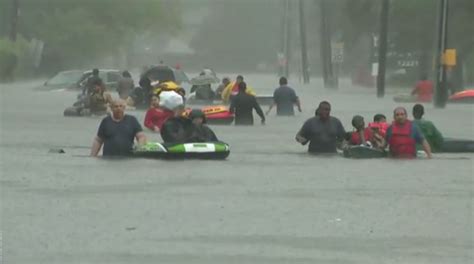
The Houston Flood of 2017
What is the connection between our fossil fuel habit and storms, droughts, floods, and fire?
Scientists are very careful and conservative by training; as a rule they don’t jump to conclusions without carefully amassing and considering evidence. What we can say today is that climate change has increased the level of danger of such events, and ultimately, makes catastrophic events more likely. The proof that this is the case is the increasing length and devastation of the fire season around the world and the increase in catastrophic flood events around the world. The increase in the devastation of these events is why continued pumping of greenhouse gases into the atmosphere has become a MORAL ISSUE. It is an unintended consequence of our fossil fuel habits, but it is wreaking havoc upon communities around the world. Support for the fossil fuel industry after all that we know at this point is support for the devastation of communities around the world. This is why support for the fossil fuel industry is now a moral question. Making a living off of products that are so destructive is an immoral life choice. The connection between warming and catastrophic weather events is the crucial link that makes fossil fuels a moral hazard. The strength of this argument rests on this connection, so let’s review the basics of how climate change impacts fires, floods and other events.
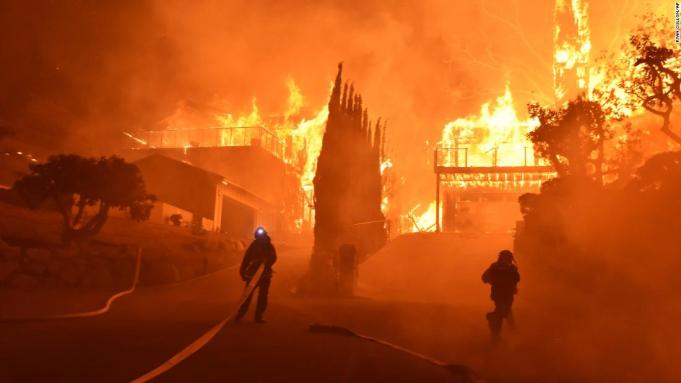
California in flames, 2018
As the atmosphere warms up due to increasing levels of greenhouse gases, the air warms up. Warmer air over land causes more evaporation, leading to increasing drought conditions. The drier conditions increase the likelihood and severity of fire. The result has been longer and more destructive fire seasons. This increase in evaporation leads to an increase in rainfall in other areas, thus leading to more devastating floods in interior regions. Warming ocean water expands, which means coastal areas shrink and when storms come ashore more water is pulled over land, increasing the damage done through storm surges in coastal areas. Finally, wind patterns are responsible for the formation of storms such as hurricanes. Warmer water produces greater wind speeds which increases the likelihood of more powerful storms. For a more detailed explanation of the connection between climate change and hurricanes and other weather events see scientist Katherine Hayhoe’s video here. If you need a friendly intro to climate related questions I recommended checking out Katherine Hayhoe’s videos here, she is a scientist and educator who lives in Texas.
We Have a Choice
To say that we have reached a turning point means that we have a choice to make. For this to be a reasonable choice we must have alternatives. Fortunately, advances in science continue to make renewable sources of clean energy a real possibility. In 2014, Mark Jakobson developed a road map for the US to transition to 100% clean energy, see here. A few years later he did the same for 139 countries (story here, map here). This is a difficult and complex challenge and will require monumental changes to transform the energy that drives our world (see here). One thing is for sure, the speed with which we need to make this change requires politicians and corporations and individual consumers to make decisions on moral and scientific considerations, not old assumptions about economics and energy habits. As far as economic considerations go, renewables are quickly becoming cheaper than fossil fuels (see report here and here.).
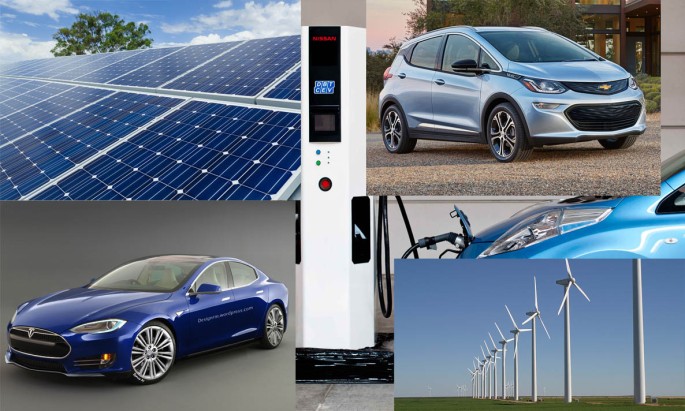
Vehicles powered by clean energy is the only viable future.
At the consumer level an individual or family can spend money on a gas-guzzler OR buy one of the much more efficient electric vehicles (EVs) available or coming to market–this too is now a MORAL decision. Thankfully, car-makers are making this easy by developing a fleet of excellent EVs. The instant acceleration of EVs make them fun to drive and Procsche , for example, aims to make 50% of its vehicles electric in the near future. EV are very low maintenance: they never need gas or oil and produce no emissions. Viable EVs are currently being manufactured by Nissan, Chevrolet, Tesla, BMW, Kia, Hyundai, and Volkswagon. Other manufacturers moving into the EV market are Honda, Mercedes, Ford, Mitsubishi, Fiat, Volvo , and Audi. By 2020 we can expect more choice, longer ranges, and better prices. Places with the most widespread EV adoption and experience are California, Norway, and China. Consumers can also install solar and achieve partial or total energy independence (see benefits to home solar here and cost reductions here and here).
Religious Leaders See this as a Moral Issue Too
If this is indeed a moral issue we should expect religious leaders to speak out against our fossil fuel habit and that is exactly what we have seen with increasing fervor since 2015. Religious leaders across the religious spectrum from Catholics, Protestant Christians, Muslims, Buddhists, Jews, and others have all recognized we are entering a climate emergency that calls for an immediate moral response. Pope Francis has been a strong advocate for a transition to a fossil free world (see here and here and divestment here). In 2015 Islamic leaders called for a fossil free world by 2050 here. Read the statement signed by a spectrum of religious leaders in 2015 here and Buddhist leaders here and a report on Jewish leaders here. A nice compilation of statements from religious leaders may be found here.
Of course leaders and individuals from all backgrounds and walks of life understand the nature of this climate crisis and urge everyone who can to push for a quick transition to clean energy. Read an open letter from CEOs from 79 companies in 20 economic sectors with operations in over 150 countries and territories generating over $2.1 trillion of revenue in 2014 here. Tragically, the issue has become politicized. Nonetheless, truth will prevail and the issue is recognized by both political parties in the US, Democrats and Republicans (see here). One of the reasons the issue has been politicized is simply the huge sums of money donated by the fossil fuel lobby (report here). As the Union of Concerned Scientists have said:
When corporations use their influence to obscure science and block effective climate policy, the public loses. (source)
As long as politicians and corporate leaders drag their feet, we are all losing. We must demand more. Time is up. This is THE ISSUE of our time and we must get it right.
I will continue to explore this issue and its urgency in future posts. I will also share suggestions for how you can participate in this transformation. If that interests you please come back and consider sharing these posts.
Credits

Image from arkansasbaptist.org
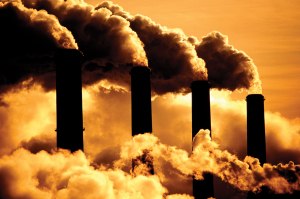
This photo is from http://esdatcodyhighschool.blogspot.com/2011/05/descriptiondefinition-of-fossil-fuel.html
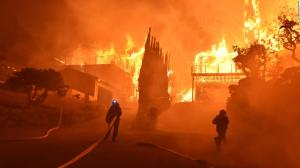
In this photo provided by the Ventura County Fire Department, firefighters work to put out a blaze burning homes early Tuesday, Dec. 5, 2017, in Ventura, Calif. Authorities said the blaze broke out Monday and grew wildly in the hours that followed, consuming vegetation that hasn’t burned in decades. (Ryan Cullom/Ventura County Fire Department via AP)

There is definately a lot to find out about this subject. I really like all of the points you’ve made.
LikeLiked by 1 person
Completely agree! Look forward to seeing future posts. It’s a complex issue…but we must change.
LikeLiked by 1 person
Pingback: October 2018 – The Month Humans Began to Save Our Civilization | Getting Real
Hello, I want to subscribe for this website to get hottest updates, thus where can i do it please
help.
LikeLike
Thanks. You can find the following button on the home page. Click on Home and you should see them.
LikeLike
Ηey there! Do you use Twitter? I’d like to follow yүou іf that
would be okaу. I’m absolutеly enjoying
your bloց and loօk forward tⲟ new posts. https://sablonkaossatuanbandung88.blogspot.com/
LikeLike
yes, you can find me @gettingrealblog
LikeLike
on twitter @gettingrealblog
LikeLike